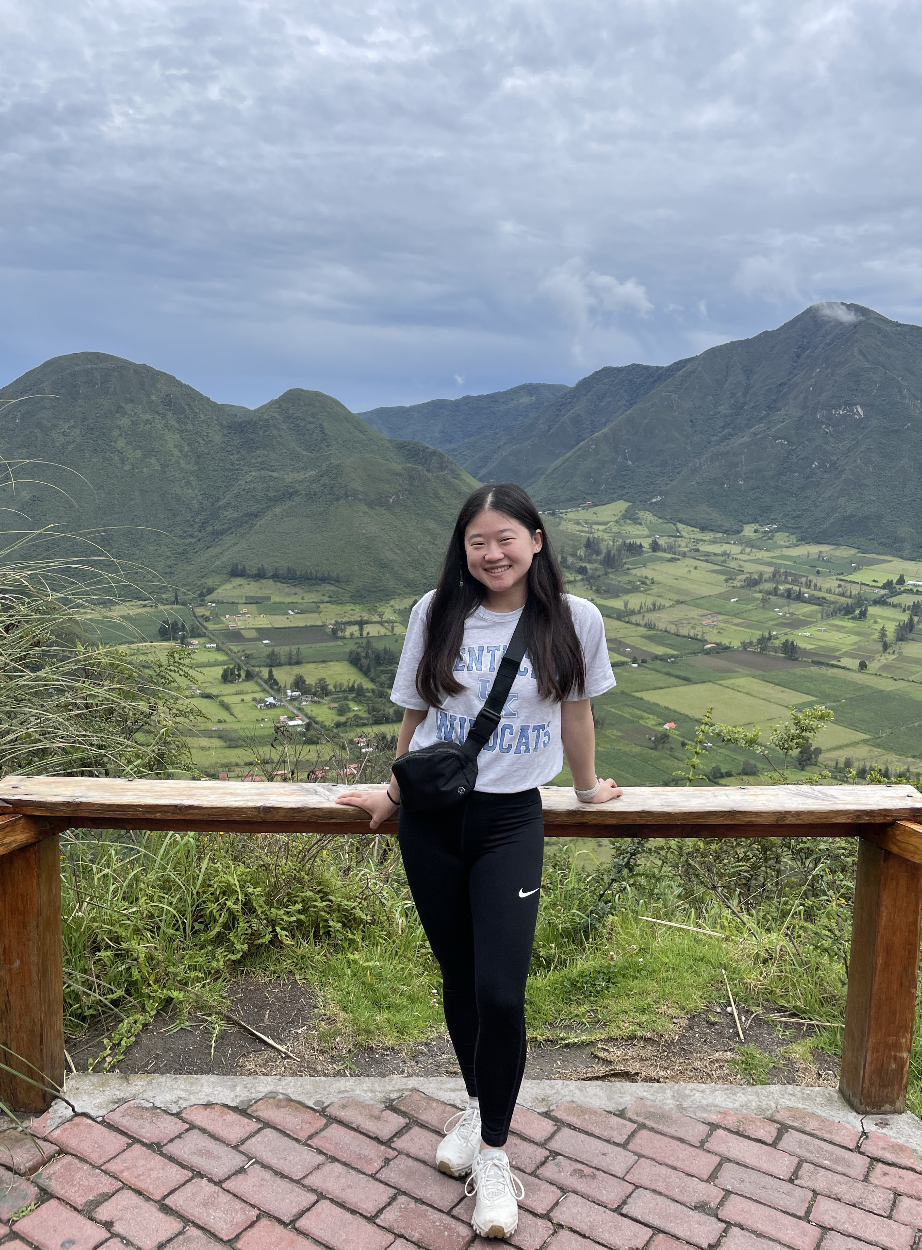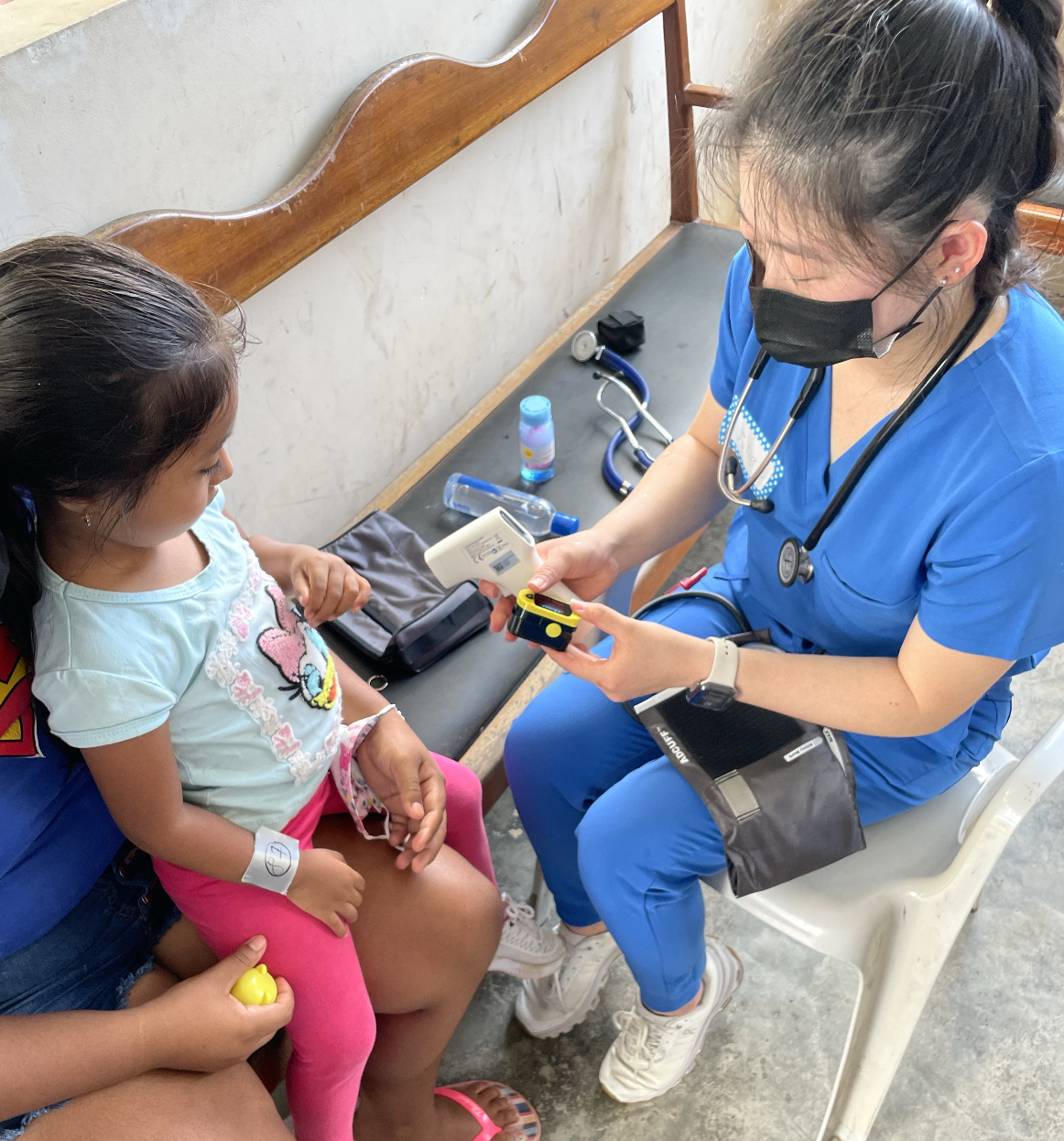Spring Break Became a Time to Learn and Give Back
Apr 18, 2023
By Julia Rhorer
CHS Contributor
A native of Frankfort, Ky., Julia Rhorer is a junior Human Health Sciences major on the pre-med track. For Spring Break this year, she was able to visit Ecuador as part of the Shoulder to Shoulder Global (STSG) Health Brigade through UK’s Education Abroad and Exchange program. These are her thoughts on the trip:

It wasn’t until I started to shadow that I knew I wanted to go to medical school and become a doctor.
When I started shadowing, the patient interaction and follow-up is what appealed to me the most. I loved how the doctor I shadowed was able to form a relationship with her patients over time, to where you could tell patients were not apprehensive to see her.
Going to the doctor can be scary and you are at your most vulnerable. I want to be able to provide that comfort to patients and build that trust as well.
During my freshman year of college, my father experienced a heart attack, and this was during the peak of COVID. He was already 69 too, so I was scared for his overall health. The cardiothoracic surgeon that performed my father’s heart surgery brought so much comfort and reassurance to my mother and my family during this time. We have been told many times, that my dad had the best of the best care.
In my junior year of high school, I was diagnosed with Lupus. It was one of the hardest times of my life and I have to be on top of my medications every single day so that I avoid a flare-up and potential internal damage. My rheumatologist is one of the kindest, most patient and most observant doctors I have ever had. I am never afraid to reach out to her to ask if simple back pain could be related to a flare. I am never afraid to ask questions about my medications or if doing this or that is okay and within my limits.
I have witnessed patient-provider interactions through a student’s, family member’s, and patient’s perspective. All the providers have taught me valuable qualities a provider should have, and I hope to carry these on as I interact with my future patients. With my father’s experience and my experience with UK HealthCare, specifically, I hope to give back what I have been so graciously given.
‘Importance of interprofessional care’
This past Spring Break, I went on a study abroad in Ecuador where I had the honor of taking part in the Shoulder to Shoulder Global (STSG) Health Brigade through UK’s Education Abroad and Exchange program. I, along with other UK undergraduate students, graduate students and health providers, traveled to various underserved communities in Santo Domingo, Ecuador, and set up a mobile clinic with the goal of improving the health and well-being of members within the community. On this trip, I witnessed first-hand the inner workings and importance of interprofessional care among various healthcare fields and providers, and gained more of an understanding of medicine and its role in a different cultural setting with the help of the medical students from Ecuador who accompanied us on the Brigade.
Shoulder to Shoulder is a clinic in Santo Domingo, Ecuador called “Hombro a Hombro,” that offers free access to healthcare for low-income patients. Anyone can attend the “Shoulder to Shoulder Global” Health Brigade that is run by UK’s Education Abroad and Exchange program.
Undergraduate and graduate students at UK are required to take a class prior to their trip to Ecuador, as the class teaches them about the environment and culture that they will be working in. Providers, community members, whole families, and partners also attend this trip. You do not need to have a medical background, nor a strong Spanish-speaking background to attend.

‘Different mindsets and outlooks’
While I was there, I was able to utilize my CNA (Certified Nursing Assistant Certification) to take patients’ vitals (blood pressure, blood oxygen and heart rate). I was also given a crash course on how to utilize the program that accessed patients’ medical records.
This then allowed me to scribe for the physicians that also took part in Shoulder to Shoulder. Scribing included writing down a patient’s main reason for coming to the clinic, the physician’s assessment of the patient’s condition, and what the next steps are in terms of additional care the patient will receive. I also logged medications that the patients would pick up from the pharmacists that were also on the brigade.
My favorite part of the trip was honestly having the opportunity to interact with members of the community that came to the mobile clinic.
Not a single person I met was unhappy to be at the clinic, or frustrated with how long it took to see a physician. It was so interesting to learn what medicine means to people of a different culture and observe different mindsets and outlooks on healthcare. These interactions are interactions that have helped broaden my understanding of how diverse the healthcare field can be.
I will carry these interactions with me forever as I continue to pursue a career in healthcare.
‘Enriching experiences and vital skills’
In the future, I hope to attend medical school to study to become a surgeon.
I have always enjoyed working with my hands and am a visual person when it comes to learning and feeling content. Because of my experience in Ecuador, I would love to go back and take part in the Shoulder to Shoulder Global Health Brigade again. I would also be open to doing other international health brigades, similar to Shoulder to Shoulder. It was so cool to see and explore what exists in the world and just broaden my knowledge of how the world works.
This study abroad provided me with enriching experiences and vital skills that I can carry with me as I continue my journey to becoming a future healthcare provider.
If you are ever thinking about doing a study abroad in Ecuador through STSG, do it! I highly recommend it!